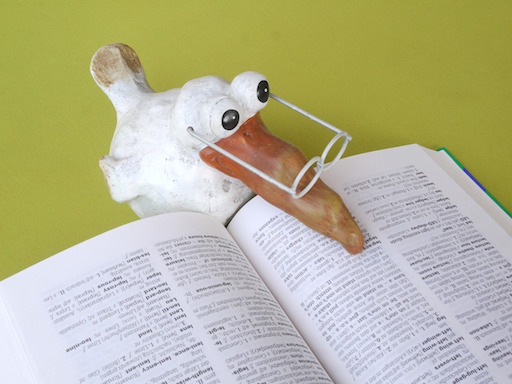Exam Prep Tips
Exam Preparation Best Practices

Tests, quizzes and exams are inevitable parts of a student’s academic journey. Whether you are preparing for a small test coming up soon or your exam period in January, here are a few helpful thoughts on exam preparation that we routinely discuss with our students at SuprAcademy.
-
Organize your materials
Do you find yourself thinking, “I swear I have seen this before”, when you are trying to solve a particular problem? Chances are, yes, you did. Want to find out exactly where? Check your binder. The first thing you should do when preparing to study for your final exam is to go through your binder(s) for each subject and organizing your notes, worksheets, past tests and quizzes, handouts, your periodic table, formula sheet and any other material. There is no right or wrong way of organizing your materials: Do it the way that makes sense to you. The idea is for you to be able to know where your material relevant to a topic/problem is, so you can easily locate it when you need it.
-
Most challenging first
When studying for your final exam, work on chapters and concepts that gave you the hardest time during the term first. This will allow you to have plenty of time to read on the concepts in more depth or ask for help in advance.
-
Take advantage of tutorial sessions
Many schools have set times for students to drop in for extra help. Make use of these opportunities to ask questions or ask for clarifications of concepts that you find challenging.
-
Revisit your tests and quizzes
Go through your past tests, assignments and quizzes and find questions that you didn’t do well on or generally found the most challenging and review the concepts associated with those questions. Bonus: re-do the questions from your past tests. Solving problems and responding to questions help us to remember concepts better. We notice from our daily sessions at SuprAcademy that some students don’t like to look at their past test results again (especially if the results are not something that they are proud of!) but we always like to emphasize the importance of learning from your mistakes. It would be a great mistake to ignore past tests and quizzes while preparing for exams that will inevitably include concepts covered in the past tests!
-
Take advantage of your review packages
If you were provided with a test/exam preparation package, make sure you work on ALL of the given questions and understand all of the concepts covered there. Your teacher prepared the review package with the exam in mind. They should give you a good idea of what to expect in the exam and what area to spend most of your time studying on.
-
Don’t forget the first unit!
The units covered early in the semester are usually introductory and “easy” in nature. Some teachers may even choose to let student learn the first one or two sections on their own. Even though that’s generally true that they usually are introductory units, it doesn’t mean that they should be ignored. Theses units often lay the foundation for the rest of concepts covered in the textbook and/or the class. So make sure you budget some study time for the first units of your class.
-
Cheat sheets are not substitutes for studying
Some teachers allow students to prepare and bring in “cheat sheets” to their exams. It can be very tempting to think that having cheat sheets is going to make the exam “easy.” That’s not accurate. Cheat sheets should only be used as secondary backup for a quick glance when absolutely needed. If you find yourself avoiding studying certain areas of your math or science work because you have what you need in a cheat sheet, then you are doing it wrong.
-
Remember your formulas
One of the things we emphasize when working with our students at SuprAcademy is the importance of remembering the various math and/or science formulas that they have to work with. There is often a temptation to think that since you would be getting a “formula sheet”, you wouldn’t really need to remember any formulas.
Here are the reasons why you should remember (and understand!) your formulas:
1) you will save time! You may find it hard to believe, but it takes a lot less time to jot down any formula from memory than to copy it off of the given formula sheet. Try it.
2) knowing your formula = knowing your stuff. The best way to remember mathematical formulas is to understand the concepts around them. Formulas are not just random collection of symbols and letters.
-
Sleep well the night before exam day!